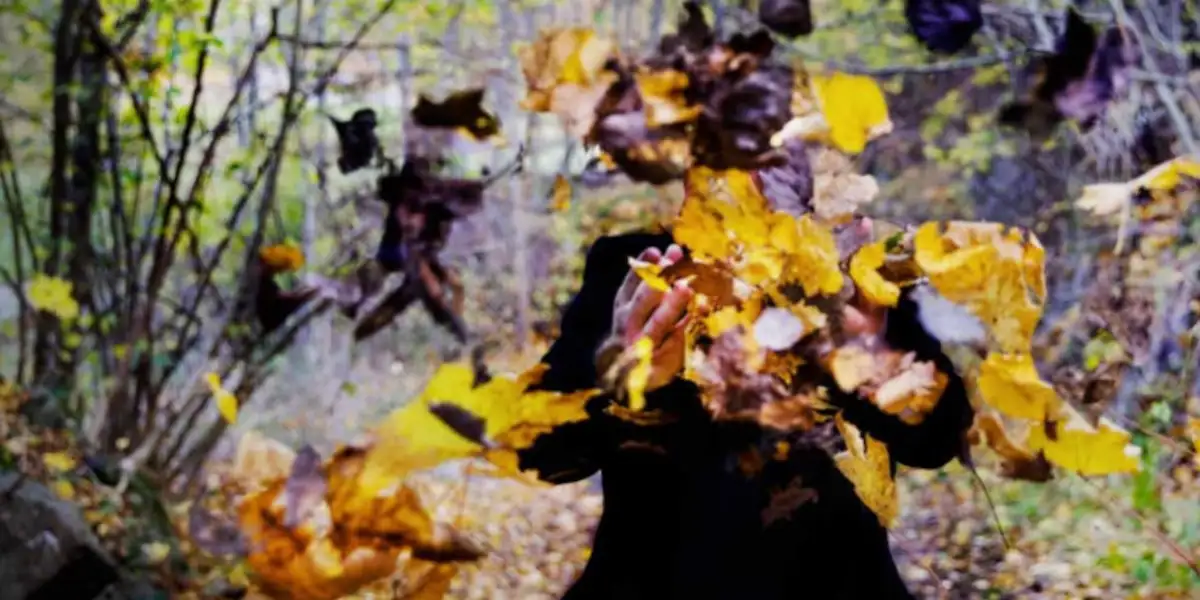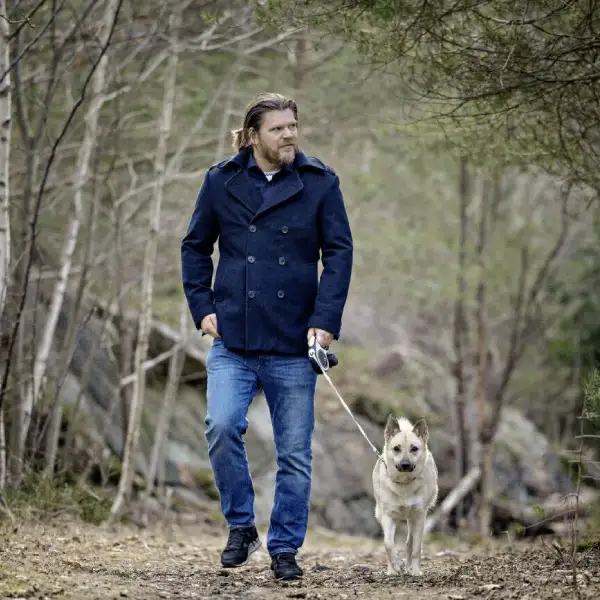More than 11 years revealing secrets because there is no excuse for secrecy in God’s true religion – The Watchtower, June 1st 1997; Dan 2:47; Matt 10:26; Mark 4:22; Luke 12:2; Acts 4:19, 20.

“Imagine if I lose my daughter” is a 2017 article by Bjørn Markussen, a journalist for Fædrelandsvennen (fvn.no). Its about Jan, who went by Frederick at the time, on his emotional journey of the challenges and fears of losing his family and friends due to being shunned from the only lifestyle and community he’s known.
It hurts to disappoint our parents so much that we are no longer their children.
This Article was written by Bjørn Markussen, a journalist for Fædrelandsvennen (fvn.no), a Norwegian news outlet covering religious freedom and critiquing specific religious communities. In 2017, Markussen wrote about Jan Nilsen in, “Imagine if I lose my daughter”, then going by the name Fredrik, for he was PIMO (Physically in, Mentally out).
The article is republished by Miss Usato because it was quoted in the February 2025 Appeal between Jehovah’s Witnesses and the Norwegian Government. This is about shunning, losing your friends and family, and the price we pay for having been in a religion that penalises members with an extreme form of shunning for those who dare leave.
The faith was abandoned 20 years ago, but Fredrik remains a member of Jehovah’s Witnesses.
“If I resign, I risk losing all contact with my daughter. For the rest of my life,” he says.
He is in his early 40s and belongs to one of Southern Norway’s Jehovah’s Witnesses congregations. In this interview, we will call him “Fredrik”. He has wanted to leave the congregation for several years, but the price is high.
“I can handle losing contact with my parents, but the children…”
No Hello
“We have no spiritual or social fellowship with disfellowshipped persons,” states the Jehovah’s Witnesses’ magazine, The Watchtower. And disfellowshipped persons should be treated in the same way as outcasts, the leaders write, adding how radical the break should be:
“Just saying ‘Hello!’ to someone can develop into a full conversation and perhaps even into a friendship.”
“Those who are not Jehovah’s Witnesses probably think that family will always be there – that family is something you have… always. Those of us who have grown up as Jehovah’s Witnesses have learned something different; the family is obligated to shut us out if we no longer believe correctly or live as Jehovah has determined.”
Do not look for Excuses
Jehovah’s Witnesses write on their open website that they will not “press or force anyone to continue to be a Jehovah’s Witness. Each individual must choose for themselves which religion they want.”
Fredrik laughs, but his eyes are serious.
Because he knows that his family reads more than the open websites, they have also absorbed what the leaders write internally to the members:
“Loyal Christian family members do not look for excuses to have contact with a disfellowshipped relative. Their loyalty to Jehovah and his organization moves them instead to support the biblical disfellowshipping arrangement.”
Fredrik’s daughter knows this, too. She will soon be a teenager.
Spiritually Weak

Fædrelandsvennen has been in contact with Fredrik since the summer of 2017
– “I was good at giving speeches,” he says and adds: “It was expected that I would make a career in Jehovah’s Witnesses, so I, too, have been the good guy who has meant all the right things and turned my back on friends who have been unable to live within the narrow framework the congregation demands. Exclusion and ostracism were important and right.”
He takes a deep breath. He looks down at his arms. They have scars – scars from wounds he gave himself.
“Actually, my faith disappeared when I was 20, but I held on – entered the surrender phase – kept quiet about everything I thought; I didn’t really admit it to myself either. Because in Jehovah’s Witnesses, there is no possibility of deviation from common teaching. Anyone who disagrees with any of the doctrines or practices is seen as spiritually weak and must face the consequences of this. If you express dissenting opinions, you will quickly be labelled as having a bad influence on the congregation, and ultimately, you will be ostracized as an apostate opponent.”
He stops.
“I had no choice.”
Hitting Rock Bottom
It would take a couple of decades of nagging unrest before Fredrik seriously acknowledged that his belief in Jehovah – that is, “belief in the Watchtower Society’s teachings” was without substance. Empty. That was two years ago. “Then I collapsed. Completely.”
He searches for the following sentences: “When you hit rock bottom – and are about to move out – out of such a congregation – then you discover that you have … absolutely nothing. Everyone you know belongs to the congregation. Then you know that you will lose – everything. All the social codes you master within the congregation – and only there. You don’t know how to behave outside – you have become socially handicapped. You have been taught to keep your distance from all worldly people. You don’t know anyone out there. Those out there don’t know you. You are approaching 40. You are alone. Completely, completely alone. Do you understand?”
The Bandages
Fredrik doesn’t care about the tears that are flowing, but he has to wait until his voice returns.
Continues: “I was admitted. They bandaged the wounds. They locked me in. Fortunately. I was psychotic.”
He looks up. Smiles.
“Without psychiatry, my life would be over.”
He wants to make new, close friends, but: “It’s not just easy. From a young age I learned that family and all friends disappear if I don’t behave the way they want. Then it’s hard to get rid of the fear that even new friends will abandon me. Can I then take the chance to form new close relationships?”
Some of those who are excluded or withdraw from Jehovah’s Witnesses seek together – informally or in structured groups online or in regular social gatherings.
“Some of them are so angry, and I don’t think a community built on anger is that good in the long run,” he says, adding: “People like us often go through a few phases – first anger, then sadness – before we manage to connect reason and intelligence.”
He is called “Inactive

Slowly and deliberately, Fredrik has been attending Jehovah’s Witnesses meetings less often. He hasn’t been there in over two years now. “Why aren’t you being disfellowshipped?”
“It’s not enough that I’m passive – or ‘inactive,’ as we say. They have to reveal and prove that I’m an unbeliever or that I’m breaking the rules of life. That’s why I’m careful not to do anything wrong that could be revealed.
“But maybe they’ve started a process against me; maybe they’ve already found out about something. I don’t really know.”
He has siblings. They are members of Jehovah’s Witnesses.
“Both they and my parents have long understood that there is something wrong between me and the congregation, but as long as I am not disfellowshipped or disassociated, they can have some contact with me without getting into trouble. We are still together on rare occasions. A little.”
Fredrik tells of a lovely day with his brothers this winter.
“I wish it were possible to maintain our little, little contact even if I leave the congregation. We are brothers.”
His father is an “elder” in Jehovah’s Witnesses. Elder is a title that means he is a trusted leader. Only men can become elders.
Moral Corruption
“Witnesses are required not to have what we call “unnecessary contact” with relatives who are disfellowshipped or disassociated. And anyone who violates this order will lose all positions of trust, or ‘privileges,’ as we say. My father must break with me immediately and completely the day I am no longer a member. Otherwise, he will lose his position as an elder immediately. These privileges – these positions of trust, are the most important thing in the life of good witnesses. My father is actually a nice guy … many witnesses are that … ordinary and good people.”
He takes the plunge.
“It is deep in us humans – even when we have passed 40 years – that it hurts to disappoint our parents so much that we are no longer their children.”
“Literature” is the name given to Jehovah’s Witnesses’ internal books and writings. One of them, “Keep Yourselves in God’s Love,” states that all members should distance themselves from a disfellowshipped or disassociated person to protect themselves “and the rest of the congregation.”
Report It
Fredrik is divorced from his children’s mother, but that does not lead to automatic exclusion.
His father and other elders worldwide have a secret book – the “Elders’ Book”- describing the internal rules. Ordinary members are not allowed to read this book, but Fædrelandsvennen has been given access to it.
There are detailed guidelines for what is required for adultery and remarriage to be accepted. And anyway – there is zero tolerance for sex outside of marriage. And suppose there is ‘evidence’ that an unmarried member “has stayed the whole night in the same house as a person of the opposite sex (…) under inappropriate circumstances”. In that case, the process is initiated and ends with exclusion unless “the accused” repents in the way the leaders demand.
“It is if I get a girlfriend that the problems begin because I have many old friends among Jehovah’s Witnesses who would like to report me to the congregation elders,” says Fredrik.
Armagedon Soon
It is now that he says that he is nevertheless prepared to endure the loss of parents and siblings. And it is now that he adds that he is afraid of losing his daughter, too. “I can’t bear that.”
“Can you explain what you are actually saying now?“
“My daughter has learned and heard a lot about Jehovah being good and that she will be able to cuddle with tigers and pet pandas for eternity, while those who do not belong to the truth will end up in eternal damnation after the great and brutal showdown – Armageddon. Armageddon is coming soon. Very, very soon. She has learned this, and soon she will be old enough to be baptized. Whoever is baptized with us at that moment dedicates his or her whole life to Jehovah, and the baptized will reject all who have left the truth. Because that is what Jehovah wants,” says Fredrik, and explains that the elders require young baptized people who live with an outcast to break off contact with the outcast mother or father the day they move out of the home.
“Because everything is ruined if she gets baptized. My daughter is approaching her teenage years.”
“Can’t you just prevent her from getting baptized?”
“She already knows that I don’t believe the way the Witnesses should, but if I deny her all contact with the congregation and family, which she of course loves, then it could have the opposite effect – motivate her to get baptized and tie her more closely to the congregation’s teachings. Jehovah’s Witnesses have traditionally practiced adult baptism, but now there is an international trend that they also baptize children as young as seven or eight. I can refuse baptism now that she is a child, but one day she will decide for herself… Now I have to handle this wisely… imagine if my resistance contributes to her getting baptized as soon as I can’t stop her. Moreover, it is important for me to help her learn to think for herself. Because I know how destructive it has been for me to be subjected to indoctrination. I don’t want to do anything that binds her – makes her unfree.”
Another short pause.
“It’s tempting – because I can’t stand the thought of her being baptized. There’s no good way out of this.”
The Children Responsibility
We have met Fredrik several times. In a conversation in May, he said that he has become somewhat less anxious about his daughter becoming a Jehovah’s Witness.
“She does not attend meetings as often as before, and I have helped her make friends outside the congregation. But it is impossible for me to completely get rid of the fear that this will also tear apart our little family.”
The anxiety for the other children has not been as great.
“How come?”
“They were so young when we finished the training and are far less affected by this. When we do not go to meetings, they will not receive the intense influence necessary to be tied up in this. Therefore, it is unlikely that they will be baptized, with the consequences that will have.“
He says that members of the congregation are now trying to motivate his daughter to become as active as she has been before.
“They ring the doorbell and go straight to her. Telling her that they are grateful that she loves Jehovah so much. They give her the responsibility to get me back as an active member.“
“Think about it – giving a young woman the responsibility to keep her father from getting lost.”
Illegal Celebration
He waits a bit. Then he thinks of something. Smiles.
“One of the little kids asked on May 17th if we could watch the children’s parade.”
For Jehovah’s Witnesses, such celebrations of the national day are forbidden, so Fredrik and his family have not done this before. Now they put on nice clothes and line up.
A little bit of background first.
“You should have seen my kid when the train came. And when his classmates approached. It was no longer enough to just be a spectator. Suddenly, one of my little ones was in the middle of the children’s parade along with all the others.”
Fredrik’s tears flow. He clears his voice a couple of times:
“When I saw the teacher stretch out his arms and pull my kid close to him …“
Don’t want them here
In the spring, some of the Circuit Overseer leaders of Jehovah’s Witnesses invited themselves to Fredrik’s home.
“They thought it would be so nice if we ate with the children and had a nice evening – here with us.”
He says he was scared.
“They are tearing my children to pieces.”
After a day of reflection, he refused.
“I don’t want them here. They must not get hold of my children anymore.”
To be on the safe side, he took the children on a trip to another southern town on the day they were supposed to arrive. If the children now want to be with friends from the congregation who are the same age, Fredrik no longer dares to go alone to visit their friends.
“But I let them have visits from these friends here at home. Then I can make sure that they are not scared by the friends or the elders with Armageddon and Jehovah’s punishment.”
Fredrik looks out the window.
“It is unusual and completely new for me to feel that the future looks bright. The heavy psychological problems from internal conflicts and indoctrination are behind me. I am happier in every way than I have ever been.”
He smiles.
“Of course, it is only a matter of time before I am completely out – excluded or expelled. Then my parents and siblings will be gone, but at the same time, my parents will probably want to have contact with my children. Should I let them do that when I myself have become a burden to them?”
Fredrik looks out the window again.
“I have to break the generational curse. The children must escape the same hell that I have lived in.”
No Comment
Over time, Fædrelandsvennen has tried to get active members of Jehovah’s Witnesses and local leaders to tell how they experience having to break contact with disfellowshipped family members. They have all referred to the organization’s spokesperson in Norway, Tom Frisvold. However, Frisvold has not wanted to contribute to members telling about such experiences. He has also not wanted to comment on this matter
Anonymity
Fædrelandsvennen has, as a general rule, a requirement that interview subjects are identified and presented with a name and a picture showing the person’s face. When anonymity is the only way possible for telling something important, we sometimes deviate from this principle.
This interview has been anonymized because:
If it becomes known who Fredrik is, the chance of immediate disfellowshipment is likely. As is clear from the interview, he has not come out, and he himself wants to choose the time for the final break he expects will come.